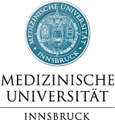Donnerstag, 07.12.2023
What makes it into the media? Party messages, communication channels and media outlets
11:30 - 13:00 Uhr
Meeting Zone (Besprechungszone), Department of Political Science, University of Innsbruck, Sowi building, 2nd floor west, Universitätsstraße 15, 6020 Innsbruck
Anmeldung ist nicht erforderlich
Eintritt / Kosten: Keine
Vortragende/r
Christoph Ivanusch, MA
Christoph Ivanusch is a research fellow in the Manifesto Research Project on Political Representation (MARPOR) and the H2020 project “OPTED Observatory for Political Texts in European Democracies” at the WZB Berlin Social Science Center. Furthermore, he is a doctoral student in political science at the Berlin Graduate School of Social Sciences (BGSS), Humboldt-Universität zu Berlin. Christoph holds BA and MA degrees in political science from the University of Innsbruck, Austria. His research int
Weitere Informationen
Media coverage of political actors and debates is a crucial avenue for voters to learn about political parties and their policies. However, nowadays the interplay between party messages and the media (i.e. party-media agenda setting) is marked by large-scale transformations and the fragmentation of political communication across different platforms and channels. Streams of influence between political actors and the media can vary significantly across different party communication channels (e.g. press releases, social media, speeches) and types of news media (e.g. newspapers, TV, online news), potentially affecting the provision of political information. In this article, we contribute to the literature by theorizing and analysing the effect of multi-channel communication environments on party-media agenda setting. Therefore, we rely on large-scale textual data from political parties (n = 19,988) and media outlets (n = 125,569) in Austria during the national election campaign in 2019. Building on the measurement of text similarity with state-of-the-art transformer-based models, we track the success of party messages from press releases, facebook, twitter and parliamentary speeches making it into important national newspapers, online news sites as well as TV and radio news programs. The findings of this article will contribute to our understanding of political agenda setting, party competition and media systems in a number of important ways.
Veranstalter
Institut für Politikwissenschaft

